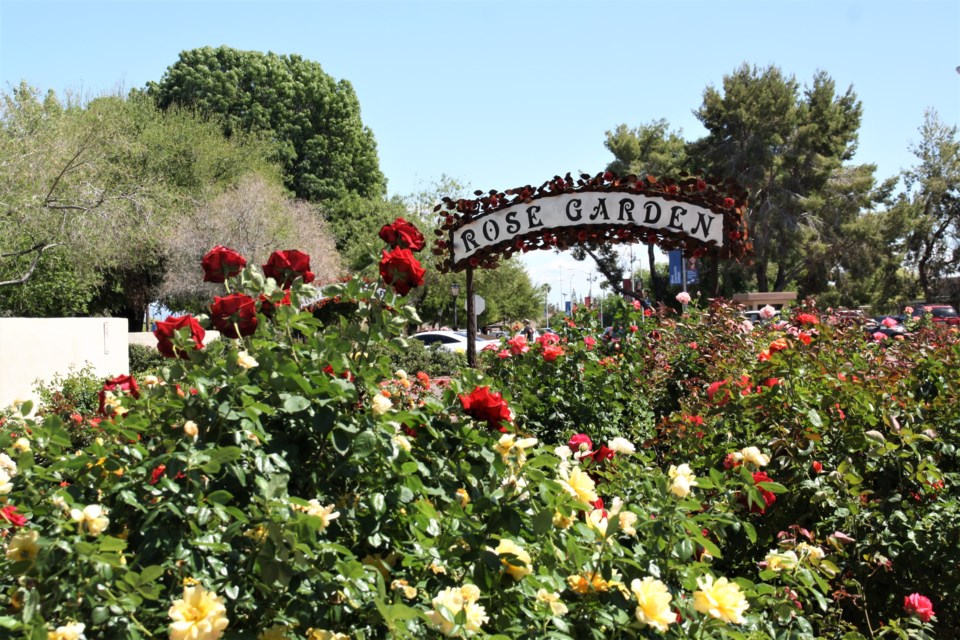Mesa Community Colleges (MCC) has received the 2021 Tree Campus Higher Education recognition by the Arbor Day Foundation for its commitment to effective urban forest management. In celebration, MCC is hosting an Arbor Day celebration from 9 to 10 a.m. tomorrow, April 29, outside the Enrollment Center at its Southern and Dobson Campus in Mesa, 1833 W. Southern Ave. The event, free and open to the public, includes the planting of native Arizona riparian trees.
The Arbor Day Foundation is the world’s largest membership nonprofit organization dedicated to planting trees. Its Tree Campus Higher Education program began in 2008 to encourage colleges and universities to plant trees on their campuses.
The MCC Southern and Dobson Campus is the first Arizona arboretum to earn accreditation from the ArbNet Arboretum Accreditation Program and The Morton Arboretum in 2018. The MCC Arboretum hosts monthly volunteer events open to the community, provides opportunities for student research and is used in teaching a variety of courses at the college.
The MCC Arboretum includes the college’s renowned rose garden, the largest in the Desert Southwest, and a four-acre Xeriscape Demonstration Garden created in collaboration with the City of Mesa and the U.S. Bureau of Reclamation.
Trees on campus and in urban spaces can lower energy costs by providing shade cover, cleaner air and water, and green spaces for students and faculty. In addition, trees improve students' mental and cognitive health, provide an appealing aesthetic for campuses and create shaded areas for studying and gathering.
Findings of a 2021 research project, Tree Effects on Campus Energy Use: An Ecosystem Services Analysis, conducted by MCC student Jacob Stillwell, indicate shade from campus trees saves the college an estimated $4,820 annually. Stillwell presented his findings at the national Botany 2021 conference.
"Trees not only play a vital role in the environment but also in our daily lives,” said Dan Lambe, chief executive of the Arbor Day Foundation. “Having trees on college and university campuses is a great way to show a commitment to students’ and faculty’s overall well being.”
The Tree Campus Higher Education program honors colleges and universities for effective campus forest management and for engaging staff and students in conservation goals. MCC achieved the distinction by meeting Tree Campus Higher Education’s five standards including maintaining a tree advisory committee, a campus tree-care plan, dedicated annual expenditures for its campus tree program, an Arbor Day observance and student service-learning projects. Currently, there are only 393 campuses across the United States with this recognition.
“The MCC Arboretum is a living laboratory providing a number of educational and ecological benefits to our community. Campus trees help reduce global warming, provide much-needed shade and give students opportunities to learn about plant life from around the world,” said Sean Whitcomb, MCC Life Science faculty. “We encourage students and community members to volunteer to help us maintain the Arboretum and plan for the future of this unique natural resource.”
The Mesa Community College Arboretum, home to more than 100 species of trees and thousands of plants from around the world, includes the largest rose garden in the Desert Southwest. Visit mesacc.edu/arboretum to learn about the species of plants found on the campus and to access an interactive map of the trees on campus, which allows visitors to search for specific trees by their common name, scientific name or botanical family. The map is continuously updated as plants are added or removed.



